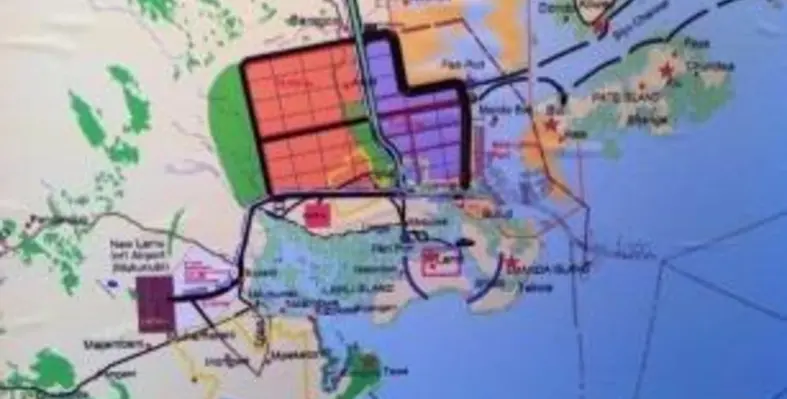The Lamu Port-South Sudan-Ethiopia Transport and Development Corridor is a public-private partnership (PPP) joining Kenya, South Sudan and Ethiopia. Mwangi Mumero reports
Three of the expected 32 deep sea berths are scheduled for opening early next year at Kenya’s Lamu Port, creating another avenue for cargo entry and departure for three Eastern African nations that also include South Sudan and Ethiopia.
Fully funded by the Kenyan Government at a cost of US$480mn, the three berths are being constructed by the China Road and Bridge Corporation (CRBC) which signed a deal with the Kenya Port Authority (KPA), the statutory body in charge of ports.
The ongoing work has involved dredging the quayside, deepening the docking area for ships by 17.5 metres. Other works have involved the construction of a revetment, causeway, buildings and utilities, procurement of equipment and tug boats.
“Lamu has a natural draft of minus 18 metres deep and the dredging will take it to 23 metres deep. It will have a capacity to handle vessels carrying between 6,000 and 13,000 TEUs,” observed Catherine Mturi, KPA managing director.
Upon completion, Lamu Port is expected to handle bigger vessels than Mombasa Port – the main gateway to East Africa. Officials say that the three berths are designed to handle 30,000 Dead Weight Tonnage (DWT) and 100,000 DWT for general bulk and container cargo respectively. Construction work also involves reclaiming the sea, which will place the berths more than 700 metres into the India Ocean. The first three berths will stretch 1.2 km long with a width of 750 metres.
The remaining 29 berths will be financed by the private sector investors.
Lamu’s Manda Bay is well-sheltered and has deep water of around 18 metres along the main channel and 50-60 metres in the bay, able to accommodate Panamasize vessels. In the 1500-1800s, the Arabian, Portuguese and Spanish traders used the port in the Indian Ocean to do business that took spices, slaves, ivory and other merchandise across the seas. Lamu is 242 km north of Mombasa along the Indian Ocean, close to the Somali border.
Launched five years ago and officially known as Lamu Port-South Sudan-Ethiopia Transport and Development Corridor (LAPSSET), the project is a public-private partnership (PPP) that joins together three East African Countries – Kenya, South Sudan and Ethiopia. According to the United Nations Development Programme (UNDP), Africa has a number of successful PPP infrastructural projects. They include the Nationwide Water and Power Project in Gabon, construction of the N4 Toll Road between South Africa and Mozambique and the Urban Water Expansion project in Dakar, Senegal.
The joint Lamu Port development venture will see the opening of another transport corridor that will spur trade in the region. It will connect Lamu Port, northern Kenya and extend to southern Ethiopia and Juba, South Sudan in the west, that runs parallel with the Mombasa Nairobi-Kampala transport corridor.
The project will also see the development of an 800 km road system, a standard gauge railway, a 1,300 km oil pipeline, an oil refinery and an airport. (See page 24 below for more)












